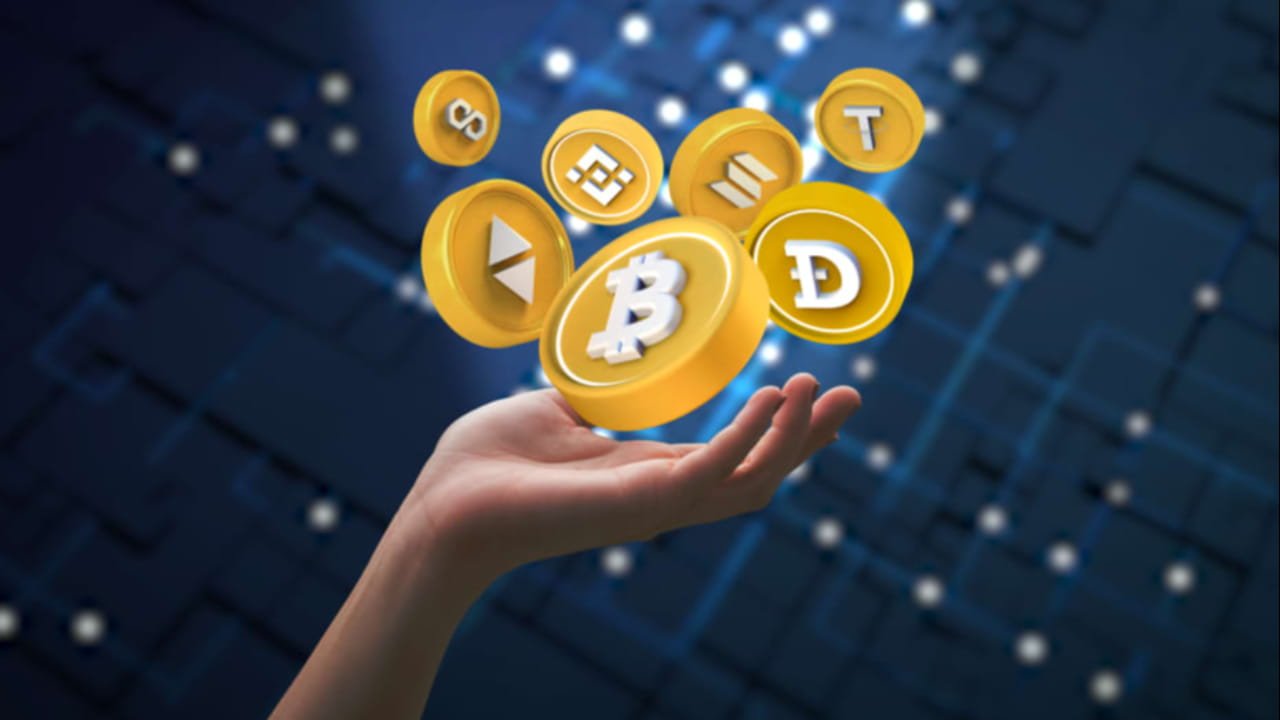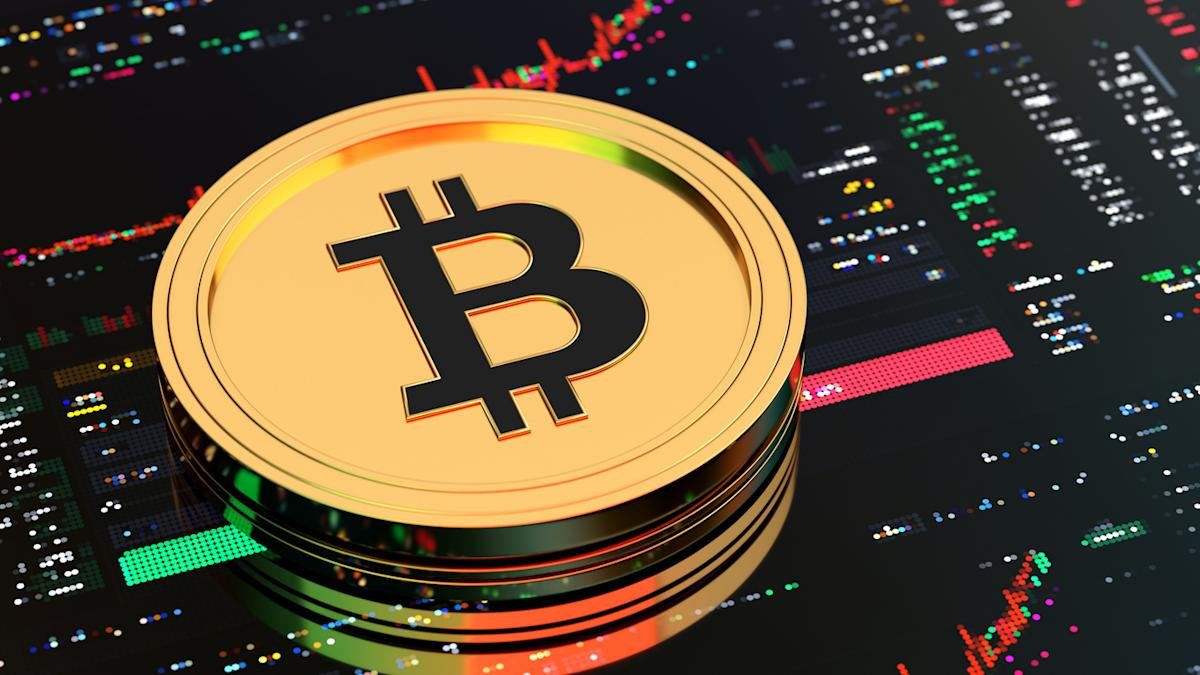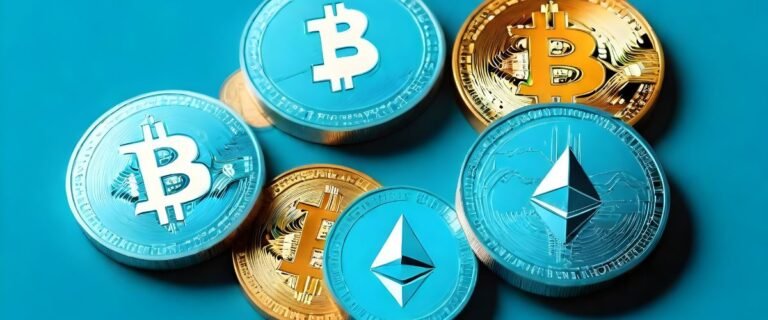Finding reliable places where to buy altcoins safely has become one of the most critical concerns for cryptocurrency investors in 2025. With thousands of alternative cryptocurrencies flooding the market and new platforms emerging daily, the risk of falling victim to scams, hacks, or unreliable exchanges has never been higher. Whether you’re a seasoned crypto trader or a newcomer looking to diversify beyond Bitcoin and Ethereum, understanding how to navigate the altcoin landscape securely is essential for protecting your investment.
The cryptocurrency market has evolved dramatically, with altcoins representing over 60% of the total market capitalization. However, this growth has also attracted bad actors and created numerous security vulnerabilities. From exit scams to exchange hacks, the horror stories are endless. That’s why knowing where to buy altcoins safely isn’t just about finding the best prices – it’s about protecting your financial future and ensuring your digital assets remain secure throughout your investment journey.
What Are Altcoins and Why Security Matters
Understanding Altcoins in the Modern Market
Altcoins, short for “alternative coins,” refer to any cryptocurrency other than Bitcoin. This category includes established players like Ethereum, Cardano, and Solana, as well as emerging projects and meme coins. The altcoin market has exploded from just a handful of options to over 20,000 different tokens and coins available today.
The diversity in altcoins presents both opportunities and challenges. While some altcoins offer innovative solutions to real-world problems and have generated substantial returns for early investors, others are nothing more than elaborate scams designed to separate you from your money. This reality makes understanding where to buy altcoins safely absolutely crucial for anyone serious about cryptocurrency investing.
The Growing Security Concerns
The decentralized nature of cryptocurrency, while offering many benefits, also creates unique security challenges. Unlike traditional banking, cryptocurrency transactions are irreversible, and there’s no central authority to help recover lost or stolen funds. This permanent nature of crypto transactions means that choosing secure platforms and following proper safety protocols isn’t optional – it’s essential.
Recent statistics show that cryptocurrency-related crimes resulted in losses exceeding $14 billion in 2024 alone. Exchange hacks, phishing attacks, and fraudulent platforms account for the majority of these losses. Understanding these risks and knowing how to mitigate them is the first step in learning where to buy altcoins safely.
Top Secure Platforms Where to Buy Altcoins Safely
Tier 1 Centralized Exchanges: Maximum Security and Regulation
Binance: The Global Leader
Binance consistently ranks as the world’s largest cryptocurrency exchange by trading volume, offering access to over 500 altcoins. The platform employs multiple security layers, including two-factor authentication (2FA), cold storage for user funds, and a $1 billion insurance fund called SAFU (Secure Asset Fund for Users).
Security features that make Binance a safe choice:
- Cold storage for 95% of user funds
- Regular security audits and penetration testing
- Advanced risk management systems
- Compliance with regulatory requirements in multiple jurisdictions
- 24/7 customer support in multiple languages
Coinbase Pro: Regulatory Compliance Champion
For users in the United States and other regulated markets, Coinbase Pro offers one of the most secure environments for altcoin trading. As a publicly-traded company, Coinbase adheres to strict regulatory standards and maintains comprehensive insurance coverage for digital assets stored on their platform.
Key security advantages:
- FDIC insurance for USD deposits
- SOC 2 Type II certification
- Segregated customer funds stored in offline cold storage
- Regular third-party security assessments
- Compliance with US financial regulations
Kraken: The Security-First Approach
Kraken has built its reputation on security and has never experienced a successful hack since its launch in 2011. The exchange offers advanced trading features while maintaining institutional-grade security standards.
Notable security measures:
- Air-gapped cold storage systems
- Comprehensive security audits
- Advanced order types and trading tools
- Proof of reserves transparency
- Multi-signature wallet technology
Tier 2 Specialized Altcoin Exchanges
KuCoin: Altcoin Variety with Strong Security
KuCoin offers access to a vast selection of altcoins, including many smaller market cap projects that aren’t available on larger exchanges. Despite its extensive altcoin offerings, KuCoin maintains strong security protocols.
Gate.io: Emerging Market Focus
Gate.io specializes in listing new and emerging altcoins while maintaining security standards comparable to larger exchanges. The platform offers unique features like initial exchange offerings (IEOs) and futures trading.
Decentralized Exchanges (DEXs): Self-Custody Solutions
Uniswap: Ethereum-Based DeFi Leader
Uniswap operates on the Ethereum blockchain and allows users to trade directly from their wallets without creating accounts or going through KYC procedures. While this offers greater privacy and control, it also requires users to take full responsibility for their security.
PancakeSwap: Binance Smart Chain Alternative
Built on Binance Smart Chain, PancakeSwap offers lower transaction fees compared to Ethereum-based DEXs while providing access to BSC-based altcoins.
Essential Security Measures for Safe Altcoin Purchases

Wallet Security: Your First Line of Defense
Understanding wallet security is fundamental to learning where to buy altcoins safely. Your choice of wallet can make the difference between secure, long-term storage and becoming another victim of cryptocurrency theft.
Hardware Wallets: Maximum Security
Hardware wallets like Ledger Nano S Plus and Trezor Model T provide the highest level of security for storing altcoins. These devices store your private keys offline, making them immune to online attacks and malware.
Recommended hardware wallets:
- Ledger Nano X: Supports over 5,500 cryptocurrencies
- Trezor Model T: Open-source firmware with touchscreen interface
- SafePal S1: Air-gapped hardware wallet with competitive pricing
Software Wallets: Convenience with Caution
Software wallets offer greater convenience for active trading but require more careful security practices. Popular options include MetaMask for Ethereum-based tokens and Trust Wallet for multi-chain support.
Two-Factor Authentication and Account Security
Implementing robust account security measures is non-negotiable when dealing with cryptocurrency exchanges. Two-factor authentication (2FA) should be enabled on all exchange accounts, preferably using an authenticator app rather than SMS.
Best Practices for Account Security:
- Use unique, strong passwords for each exchange account
- Enable 2FA using Google Authenticator or Authy
- Set up withdrawal whitelist addresses
- Regularly review account activity and login history
- Use separate email addresses for cryptocurrency accounts
Research and Due Diligence
Before purchasing any altcoin, conducting thorough research is essential for both security and investment success. This process involves evaluating the project’s fundamentals, team credibility, and community support.
Key Research Areas:
- Project whitepaper and technical documentation
- Team background and previous experience
- Community size and engagement levels
- Code audits and security assessments
- Tokenomics and supply distribution
- Partnership announcements and real-world adoption
Red Flags to Avoid When Buying Altcoins
Identifying Fraudulent Platforms and Scam Projects
The cryptocurrency space is unfortunately filled with fraudulent platforms and scam projects designed to steal investor funds. Learning to identify these red flags is crucial for anyone seeking where to buy altcoins safely.
Platform Red Flags:
- Unregulated exchanges with no licensing information
- Promises of guaranteed returns or “risk-free” investments
- Lack of proper customer support or contact information
- No cold storage or insurance fund information
- Poor website design and unprofessional presentation
- Pressure tactics encouraging immediate deposits
Project Red Flags:
- Anonymous teams with no verifiable background
- Copied whitepapers or unclear technical documentation
- Unrealistic promises or guaranteed returns
- Heavy emphasis on recruitment and referral programs
- Limited or fake social media presence
- No working product or clear development roadmap
Common Scams in the Altcoin Space
Pump and Dump Schemes These involve coordinated efforts to artificially inflate an altcoin’s price through misleading marketing, followed by organizers selling their holdings at peak prices, causing the value to crash.
Exit Scams Exit scams occur when project developers or exchange operators disappear with user funds, often after building initial trust through legitimate-appearing operations.
Fake Mobile Apps Fraudsters create fake mobile apps that mimic legitimate exchanges, tricking users into entering their login credentials or transferring funds to scammer-controlled wallets.
Advanced Security Strategies for Altcoin Investors
Multi-Signature Wallets and Cold Storage Solutions
For serious altcoin investors, implementing advanced security measures like multi-signature wallets can provide additional protection against theft and unauthorized access.
Multi-signature (multisig) wallets require multiple private key signatures to authorize transactions, distributing security responsibility across multiple parties or devices. This approach significantly reduces the risk of single points of failure.
Benefits of Multi-Signature Wallets:
- Distributed security responsibility
- Protection against single device compromise
- Enhanced control over large cryptocurrency holdings
- Ability to create spending policies and approval workflows
Dollar-Cost Averaging and Portfolio Management
Implementing systematic investment strategies can help mitigate both security and investment risks when purchasing altcoins. Dollar-cost averaging (DCA) involves making regular, smaller purchases over time rather than investing large lump sums.
Advantages of DCA for Altcoin Investing:
- Reduces timing risk and emotional decision-making
- Spreads purchases across multiple price points
- Allows for gradual position building with enhanced security review
- Minimizes exposure to any single exchange or platform
Tax Considerations and Record Keeping
Proper record-keeping is essential for both security and tax compliance when investing in altcoins. Maintaining detailed transaction records helps with tax reporting and can aid in recovering funds if security incidents occur.
Important Records to Maintain:
- Transaction dates, amounts, and exchange rates
- Exchange and wallet addresses used
- Purpose of each transaction (investment, trading, etc.)
- Any fees paid during the transaction process
- Security measures implemented for each transaction
Platform Comparison: Features and Security Analysis
Centralized vs. Decentralized Exchanges
Understanding the trade-offs between centralized and decentralized exchanges is crucial for determining where to buy altcoins safely based on your individual needs and security preferences.
Centralized Exchange Advantages:
- Higher liquidity and faster transaction processing
- Customer support and dispute resolution
- Insurance coverage for platform-related losses
- User-friendly interfaces and mobile applications
- Regulatory compliance and oversight
Centralized Exchange Disadvantages:
- Single points of failure and hack targets
- KYC requirements and privacy concerns
- Platform control over your funds during trading
- Potential for account freezing or restrictions
- Counterparty risk related to exchange solvency
Decentralized Exchange Advantages:
- User maintains control of private keys
- No KYC requirements for basic trading
- Censorship resistance and global accessibility
- Transparent, blockchain-based operations
- No single point of failure risk
Decentralized Exchange Disadvantages:
- Lower liquidity for many trading pairs
- Higher transaction fees during network congestion
- Technical complexity requiring more user knowledge
- Limited customer support options
- Smart contract risks and potential bugs
Fee Structures and Hidden Costs
When evaluating where to buy altcoins safely, understanding fee structures is important for both cost management and identifying potentially fraudulent platforms that use hidden fees to extract additional value from users.
Common Fee Types:
- Trading fees (maker and taker fees)
- Deposit and withdrawal fees
- Network transaction fees
- Currency conversion fees
- Account maintenance fees
- Premium service fees
Legitimate platforms clearly display their fee structures and provide fee calculators to help users understand total costs. Be wary of platforms with unclear or hidden fee structures, as these often indicate unprofessional operations or potential scams.
Also Read: Secure Altcoin Wallet for Beginners Complete 2025 Guide Top Crypto Wallets
Best Practices for Long-Term Altcoin Security

Regular Security Audits and Updates
Maintaining long-term security requires ongoing vigilance and regular security audits of your cryptocurrency holdings and platforms. This includes reviewing your security practices, updating software, and staying informed about emerging threats.
Monthly Security Checklist:
- Review all exchange account activity and login history
- Update wallet software and security applications
- Verify backup seed phrases and recovery information
- Check for new security features on platforms you use
- Review and update strong passwords and 2FA settings
- Assess portfolio distribution across platforms and wallets
Staying Informed About Security Threats
The cryptocurrency security landscape evolves rapidly, with new threats and vulnerabilities discovered regularly. Staying informed about these developments is essential for maintaining long-term security.
Recommended Information Sources:
- Official security announcements from exchanges and wallet providers
- Cryptocurrency security blogs and research publications
- Community forums and social media security discussions
- Regulatory updates and compliance requirements
- Industry security reports and threat intelligence
Insurance and Legal Protections
While cryptocurrency investments inherently carry risks that traditional insurance doesn’t cover, some platforms and third-party providers offer limited insurance coverage for specific types of losses.
Available Protection Types:
- Exchange insurance funds (like Binance SAFU)
- Third-party cryptocurrency insurance policies
- Hardware wallet replacement programs
- Legal services for cryptocurrency-related disputes
- Professional custody services for large holdings
Future Trends in Altcoin Security
Emerging Technologies and Protocols
The cryptocurrency industry continues evolving, with new security technologies and protocols being developed to address current limitations and vulnerabilities.
Promising Security Developments:
- Multi-party computation (MPC) wallet technologies
- Biometric authentication integration
- Quantum-resistant cryptographic algorithms
- Improved smart contract security auditing tools
- Enhanced privacy protocols with maintained transparency
Regulatory Developments
Regulatory clarity continues improving in many jurisdictions, potentially providing additional consumer protections for altcoin investors. However, these developments also bring new compliance requirements that may affect where to buy altcoins safely.
Regulatory Trends to Watch:
- Stablecoin regulation and reserve requirements
- Exchange licensing and operational standards
- Consumer protection measures and insurance requirements
- Tax reporting and compliance automation
- International cooperation on cryptocurrency crime prevention
Conclusion
Successfully navigating the question of where to buy altcoins safely requires a combination of platform selection expertise, security best practices, and ongoing vigilance. The cryptocurrency market offers tremendous opportunities, but these opportunities come with significant risks that can only be mitigated through proper education and careful execution.
Remember that security isn’t a one-time setup but an ongoing process that requires regular attention and updates. Start with reputable, regulated exchanges like Coinbase Pro or Binance for your initial altcoin purchases, implement strong security measures including hardware wallets and two-factor authentication, and gradually expand your knowledge and risk tolerance as you gain experience.
The most important takeaway is that there’s no single “perfect” answer to where to buy altcoins safely – the best approach depends on your individual circumstances, risk tolerance, and investment goals. By following the security principles outlined in this guide and staying informed about emerging threats and opportunities, you can significantly reduce your risk while participating in the exciting world of altcoin investing.

